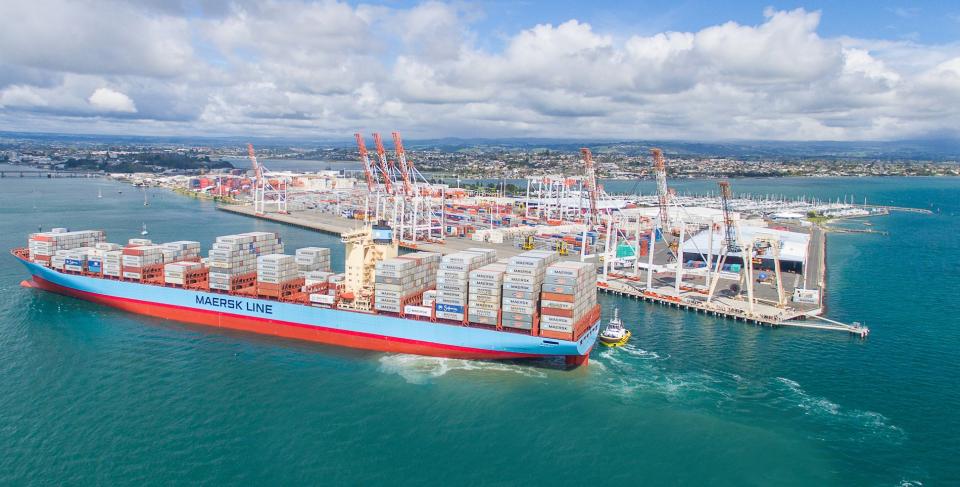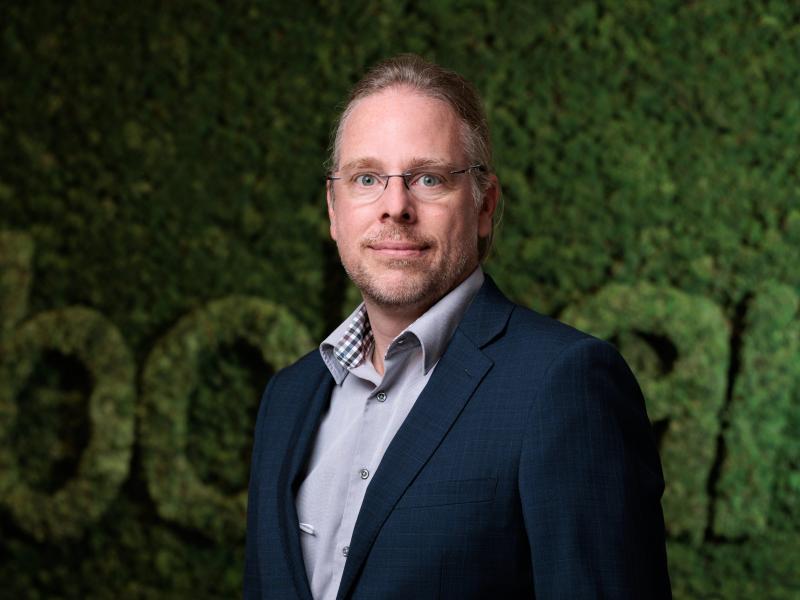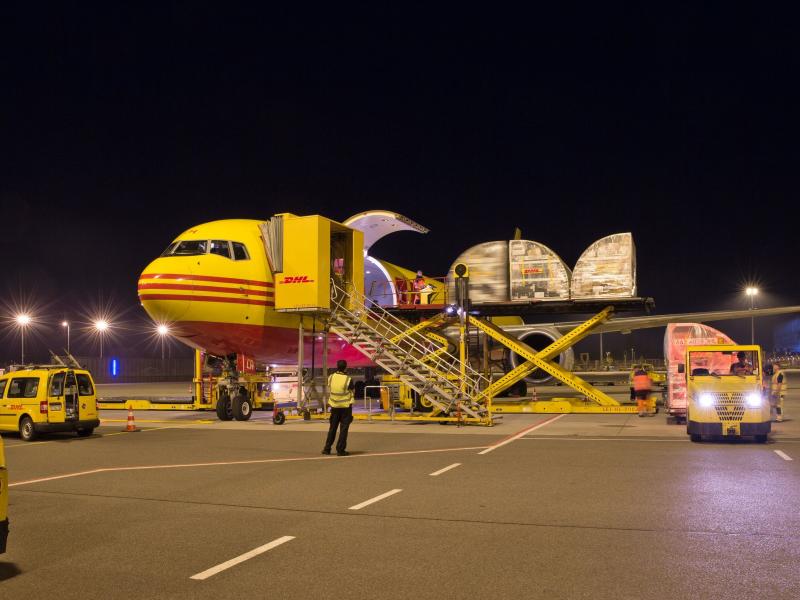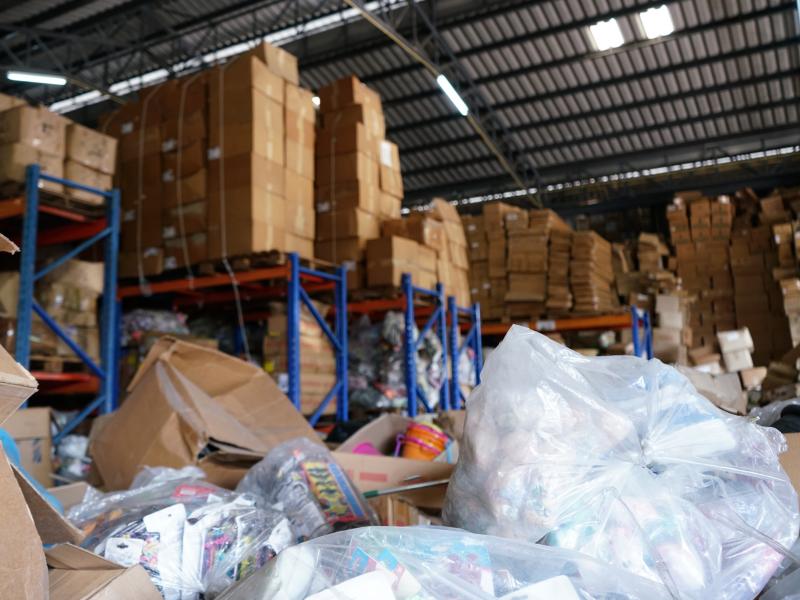There’s excitement brewing within the global shipping community, with a number of initiatives happening in 2018 and beyond. Maersk Line Oceania MD Gerard Morrison explains what it means for exporters and the wider freight and logistics sector.
According to MoverDB.com’s ranking of the world’s Top 10 International Container Shipping Companies, compiled in March 2016, Maersk Line is the world’s largest overseas cargo and freight carrier and ships around $675 billion worth of goods each year. That’s almost equal to the GDP of Switzerland.
So it’s fair to say the managing director of the company’s Oceania division is an ideal go-to person for an update on freight and logistics initiatives impacting on Kiwi trading companies in the next 12 months.
Gerard Morrison’s enthusiasm for the future is palpable over the phone.
There’re two ongoing developments being steered by Maersk that will have a real impact, he believes – the first comes under the heading of ‘global trade digitalisation’.
“This examines the industry’s rather antiquated shipping processes and, in partnership with IBM, utilises blockchain technology to revolutionise the way shipping processes work.
“Consider how processes happen [in the shipping industry] today. Documents are physically couriered, printed and faxed; cheques are still being written. There are various electronic means to make processes more efficient, and this technology partnership will target the low-hanging fruit first. It will take existing inefficient processes and almost make them instantly efficient, handled in real-time and with a higher level of security thanks to the blockchain technology.
“For exporters there’s the ability to securely prove the origin and traceability of goods.”
While Maersk has been developing this digitalisation technology in isolation, the intention is to make the platform available industry-wide and worldwide.
Morrison says Maersk, as the world’s biggest shipping company, wants to take some level of responsibility to make the whole shipping environment a much better one for everyone who works in it.
The second initiative, however, is all about Maersk – and changes to its Group structure and global set-up.
“2017 has seen greater internal efficiencies delivered by those changes,” explains Morrison. “In 2018 we hope to start discussing the benefits these changes deliver to our customers.”
A.P. Moller–Maersk Group is a huge conglomerate, and its transport and logistics business has now been isolated and is subject to extreme focus.
“Maersk owns freight forwarding companies and terminal operations around the world, a tug and stowage company, even a container manufacturer – so the focus in 2018 will be on the benefits this infrastructure offers customers.
“The vision is that customers will speak to less people, and will access a much more comprehensive service offering from Maersk than simply shipping a container from one port to another.”
New services
In terms of new services for New Zealand’s export firms, Morrison is pleased to announce that Maersk is now ‘live’ with remote container management (RCM).
He describes it as a real market differentiator.
“Over the past couple of years we’ve equipped all our 270,000 reefer (refrigerated) containers with tracking mechanisms. Customers have wanted greater visibility [on their goods in transit] for some time. It’s not just about where the container is; it’s about the conditions inside the container.
“RCM gives people the ability in real-time to see where their containers are and monitor temperature, humidity, oxygen and carbon dioxide inside them. It’s great from a peace of mind perspective, and for preventing product spoilage.”
Morrison says the technology is already gaining a lot of interest from customers.
Digitalisation of the industry is a truly significant development, he says, and in line with the impact of digital technologies on all aspects of peoples’ lives.
“We’re experiencing a generational shift in our customers as well. The customers of tomorrow will expect very different products and services to the customers of today.
“So we’re pulling out all stops to digitalise as much of our business as we can.”
Trends, challenges, advice
The global shipping industry recovered slightly in Q2 2017, which is encouraging for the shipping industry after some very challenging years.
In New Zealand specifically, the volume of imported retail goods is still growing, while exports of fresh, high-value products to China and Asia in general are also up.
For shipping companies, the major challenge of managing the supply of containers is ongoing – largely fuelled by the fact that New Zealand’s export volumes far exceed its import volumes, and many exports are seasonal.
Logistical challenges also stem from the fact that the vast majority of imports land in Auckland, while exports depart from all around the country.
“So we have to work hard with port companies, customers and intermodal operators to be as efficient as possible,” explains Morrison. “And to limit the movement of empty containers around the country, and the number of empty containers brought here.”
Morrison has advice for all Kiwi exporters – and that is to be very clear about what you’re trying to achieve. It’s not just about getting a container from port to port.
“Articulate clearly what it is that you’re trying to achieve for your business, and get different views from different people.
“There is definitely not one right way of doing things, and it very much depends on the business you are in.”
Article by Glenn Baker, editor of NZBusiness.





